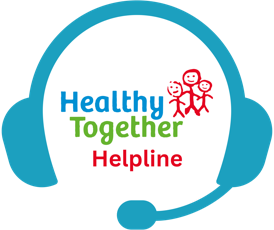Some children need a little extra help with their speech and language development. If this is the case, your Public Health Nursing (Health Visiting) team will offer the Let’s Get Talking programme to support you in helping your child.
The Let’s Get Talking programme offers strategies for you to practice with your child to help them develop their speech and language skills.
These strategies are:
Face to Face
Make sure you get down on the floor to play with your child; if needed, change your body position as you play so it’s easier for your child to make eye contact with you. This allows your child to see your mouth when you are talking and helps you to understand or respond to any attempt to communicate.
Following your child’s lead
Let your child lead play with their own ideas; spend time watching them and exploring their interests. You child will focus more on things they enjoy therefore are more likely to play longer, let you join in and pay attention to words you use.
Listen and respond
When you hear your child say something, respond in a positive manner by using a word in response. Look around at what they are doing or playing with to respond, giving the word or sound they used some meaning and offering the correct word or sound for them to hear. Your child will be encouraged to communicate with you and they will know you are interested in communicating with them.
Keeping it simple
You child will only hear key words, therefore keep instructions simple and at their level of understanding. If they are making sounds, try to name objects they are playing with and respond to them with single words. If your child says lots of single words then try adding words when you speak to encourage them to start using small sentences.
Commenting
Imagine you are a radio commentator describing a football match – comment on what your child is doing, give words meaning and name objects your child is playing with in that moment.
Reduce questions
Your child will copy and repeat things they hear, so if you ask questions they are more likely to repeat ‘what’s that?’ than telling you what it is. Instead, try commenting so they hear new words. Questions can feel like a test and decrease their confidence if they don’t know the answer.
Let’s Get Talking resources
- LGT: Keep it simple
- LGT: Following your child’s lead
- LGT: Face to face
- LGT: Traffic lights
- LGT: Reduce questions
- LGT: Commenting
- LGT: Listen and respond
Click here to access the Let’s Get Talking animation series from Health for Under 5s.
Leicestershire Partnership NHS Trust is responsible for the writing, publishing and updating of the content on this page.




